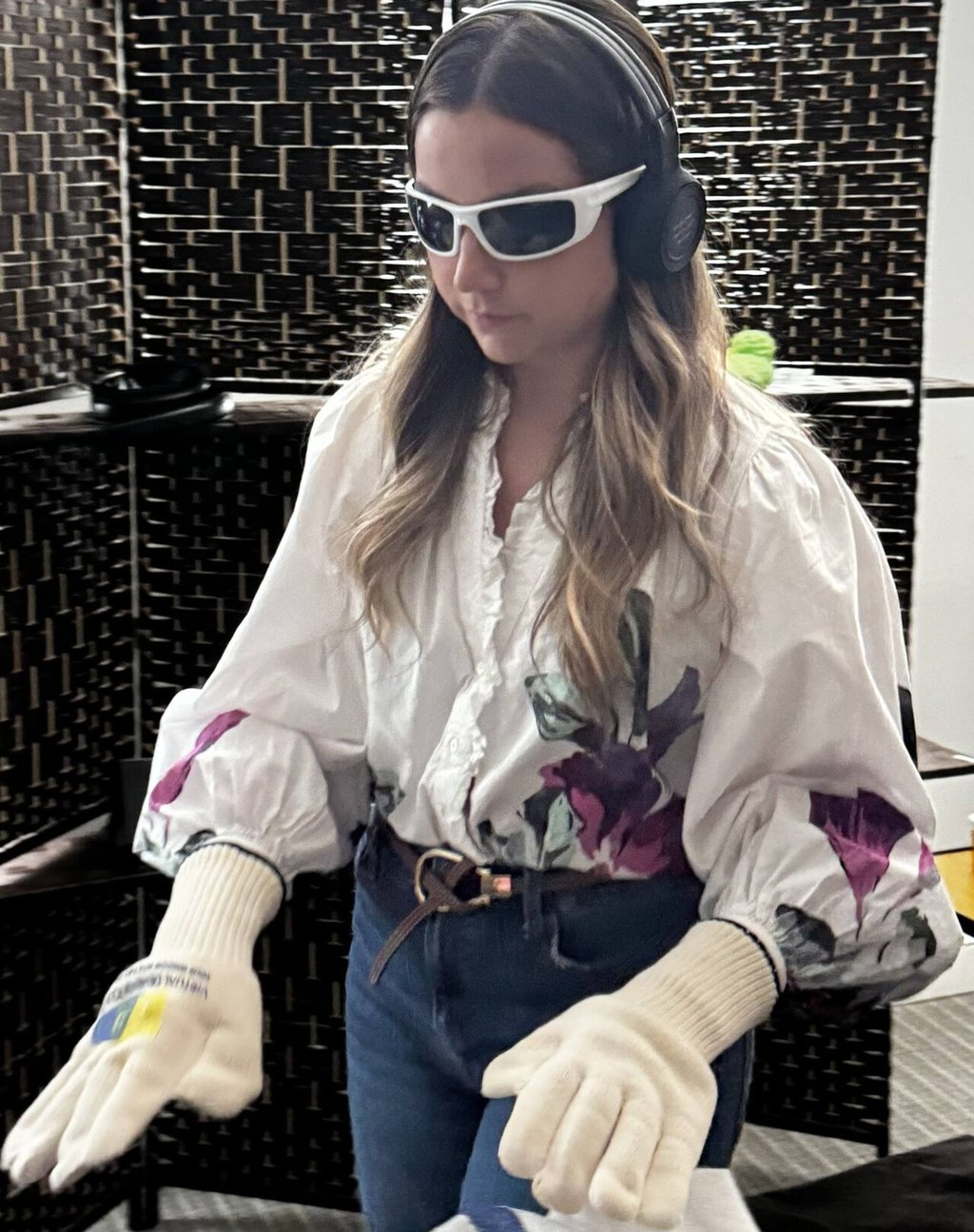Melanie Bishop was sceptical when she was invited to join a “virtual dementia tour”, but took up the offer because her mother had suffered with the condition.
Bishop, a hospice volunteer and creative writing tutor in the US state of Arizona, recalls completing a brief questionnaire beforehand. Do you feel capable of carrying out simple tasks? Yes. In the last 10 minutes, have you found yourself pacing? No. Having negative thoughts? No. Talking to yourself? No. Searching for items? No.
The tour leader handed Bishop a pair of insoles with rounded spikes to put inside her shoes. They give a feel of the discomfort from neuropathy – pain, weakness, numbness or tingling from nerve damage – that many dementia sufferers struggle with.
“Then she gave me special dark glasses, headphones, one big, awkward glove for my dominant hand, and a less awkward one for the non-dominant hand.”

Bishop was guided into a cluttered, dimly lit room. Without help, she would have been bumping off walls as the glasses mostly obscured her vision. Every step hurt on account of the insoles.
